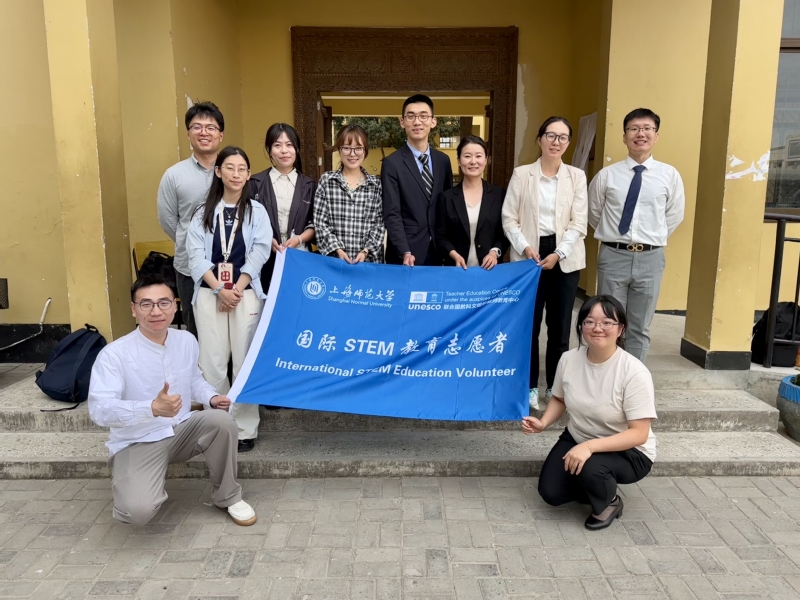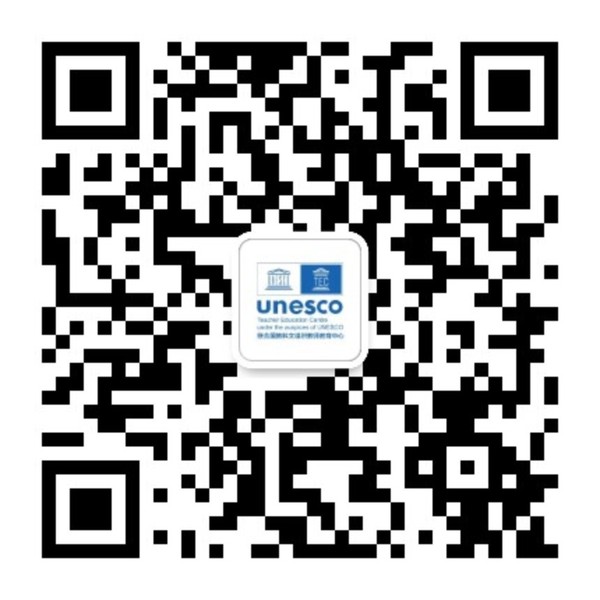From July 14 to 29, 2025, the Teacher Education Centre under the auspices of UNESCO (UNESCO TEC, hereafter referred to as the Centre) deployed a new cohort of the International STEM Education Volunteer Team (hereafter referred to as the Volunteer Team) to Tanzania for a 15-day teaching and research program, aiming to support the development of the local teacher professional development system.
Upholding the fine tradition of diverse team composition from the previous two cohorts, the Volunteer Team consists of experts from UNESCO TEC active in educational practice and research, outstanding mathematics teachers from Shanghai, and student volunteers. The team comprises three groups of members: led by Dr. Shen Yihua, a STEM education expert from the Centre, and Wang Hao, a technical expert; a frontline teacher group including Huang Heping and Gu Yuanhao (mathematics teachers from the International Division of Fudan University Affiliated High School) and Dr. Fu Jing (mathematics teacher from Shanghai Experimental School); and a three-tiered student volunteer team (undergraduate, master’s, and doctoral levels) consisting of Zhang Yunji (doctoral student from Shanghai Normal University, SHNU), Wan Junkai and Shi Yujia (master’s students from SHNU), as well as Gong Yushu and Yang Mingxi (undergraduates selected after expanding student volunteer recruitment to the undergraduate level for the first time). Against the backdrop of China’s efforts to advance educational opening-up, coordinate bringing in and going global, and continuously enhance the international influence, competitiveness, and voice of its education sector, SHNU and UNESCO TEC have actively responded to national and historical needs. They have consistently integrated youth strength into China’s educational going global initiative, further expanded pathways for youth to participate in international volunteer work, deepened the cultivation of youth’s commitment as international volunteers, and contributed to nurturing young volunteers with global competence.
On June 26, 2025, the Pre-Departure Meeting for the 2025 Summer Overseas Practice Program was successfully held at the Shicheng Lecture Hall of UNESCO TEC. Dr. Shen Yihua from the Volunteer Team explained the specific work content of the Tanzania Teacher Professional Development Program. After each subgroup introduced their detailed work plans, the Interim Party Branch of the Institute of International and Comparative Education (RIICE) was established, and all members of the Volunteer Team awaited their departure. Following several months of preliminary preparations, all members of the Volunteer Team gathered at Shanghai Pudong International Airport on the evening of July 13 and flew to Tanzania, arriving at Zanzibar Island, Tanzania, on the afternoon of July 14 (local time).
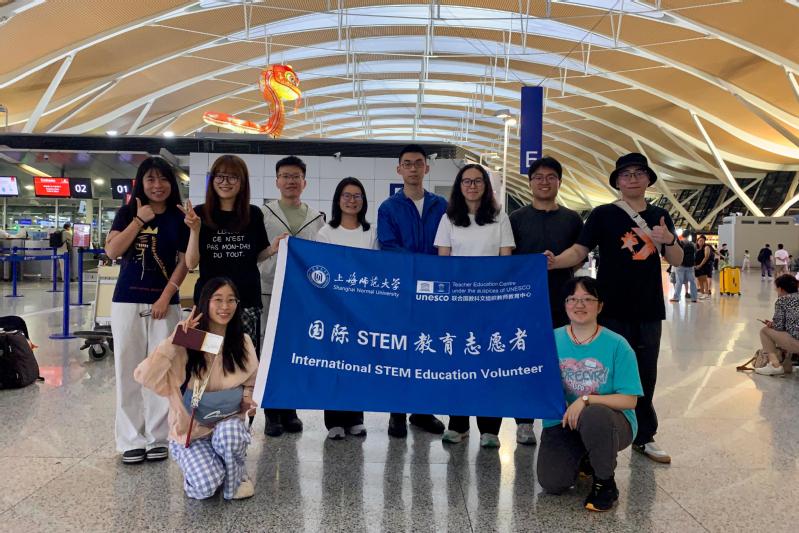
Starting from July 15, the Volunteer Team began implementing various official visits, teaching and research activities, and interview-based research in accordance with the pre-planned schedule. On the morning of the same day, the team visited the Ministry of Education and Vocational Training, Zanzibar (MoEVT), where they were warmly received by local education officials. During the seminar, Abdalla Mussa, Executive Director of the Zanzibar Institute of Education, introduced the local education system, teacher workforce development, and key priorities of curriculum reform; Dr. Shen Yihua, STEM education expert of the Volunteer Team, elaborated on the Shanghai-Tanzania Mathematics Teacher Professional Development Program; and Zhang Yunji, a doctoral student, focused on introducing the Teaching Research Group (TRG) mechanism in China’s basic education and the practical experience of previous volunteer teams. The Tanzanian side highly recognized the significance of the China-Tanzania cooperation program, and the two sides held in-depth exchanges on topics such as curriculum reform, hoping that this exchange would promote in-depth integration of teacher experiences between the two countries and solidify the implementation of educational cooperation. On the afternoon of July 15, the Volunteer Team visited Dr. Samia Primary School to conduct campus tours and teaching observations. Received warmly by the principal and greeted by students, the team learned about the school’s basic situation. Subsequently, Hafidh Ame Sheha, a mathematics teacher at the school, delivered a mathematics lesson themed Addition of Five-Digit Numbers. After the class, members of the Volunteer Team joined small groups of local Tanzanian teachers to conduct in-depth discussions on the design of teaching tasks, organization of student activities, and effectiveness of classroom interaction for this lesson.
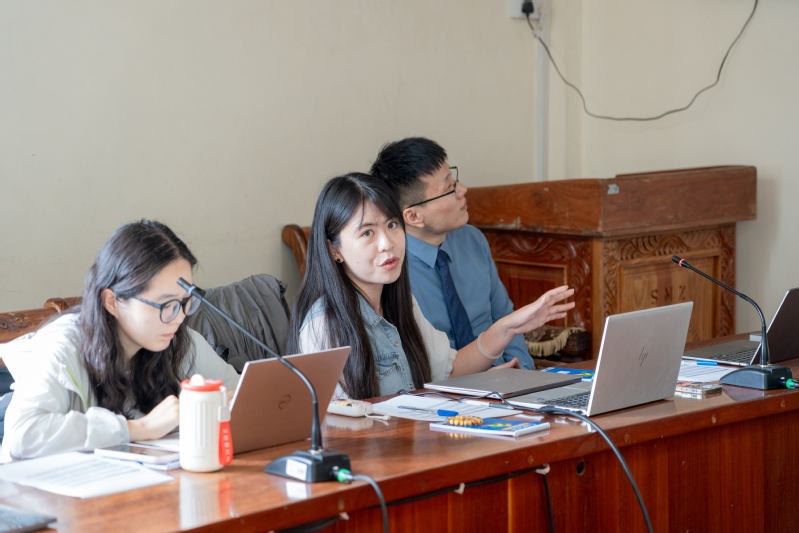
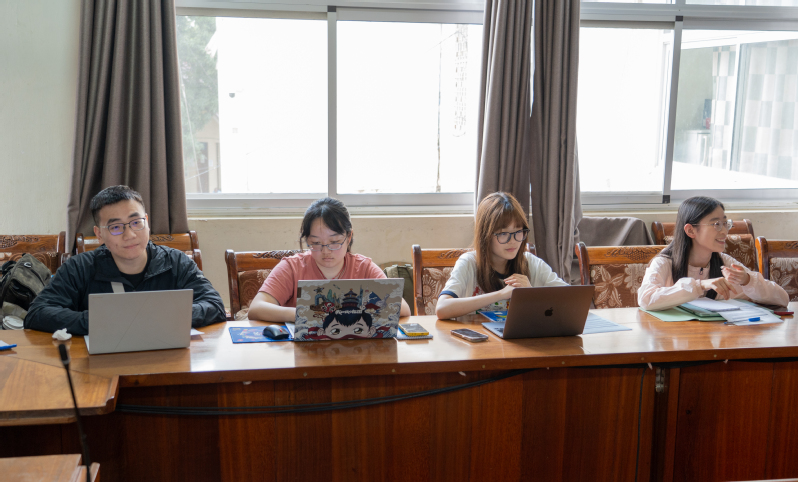
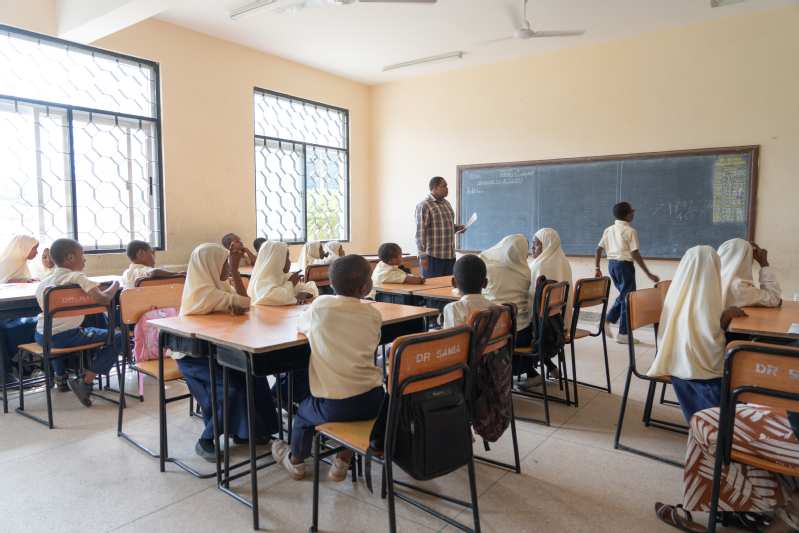
On July 16, the Volunteer Team visited Tumekuja Secondary School—known as a Five-Star School—to carry out teaching exchange activities. In the principal’s office, the principal provided a detailed introduction to the school’s development history, faculty structure, educational philosophy, and the meaning of being a Five-Star School. On the morning of the same day, Hafidh Ally Hamad, a mathematics teacher at Tumekuja Secondary School, delivered a demonstration mathematics lesson titled Geometric Transformations: Rotations in a smart classroom. At noon, the team visited the Zanzibar Institute of Education for exchanges. During the meeting, Mr. Mussa stated that he hoped this exchange would inject new vitality into mathematics teaching in Zanzibar and promote the sustainable development of local mathematics education. In the afternoon, the Volunteer Team returned to Tumekuja Secondary School, where Gu Yuanhao, a mathematics teacher from the International Division of Fudan University Affiliated High School, delivered a second lesson on Geometric Transformations: Rotations in the smart classroom, making full use of the ICT advantages of the smart classroom. Teachers observing the class and student volunteers used classroom observation checklists to record their observations, which received a warm response on site. During the post-class teaching research activity, the two lecturers respectively explained their lesson designs and reflected on their teaching, while other teachers actively exchanged views on the details of teaching design and implementation. With the participation of teachers and student volunteers, China’s TRG mechanism and Tanzania’s local MEWAKA (teacher group) mechanism complemented and advanced each other.
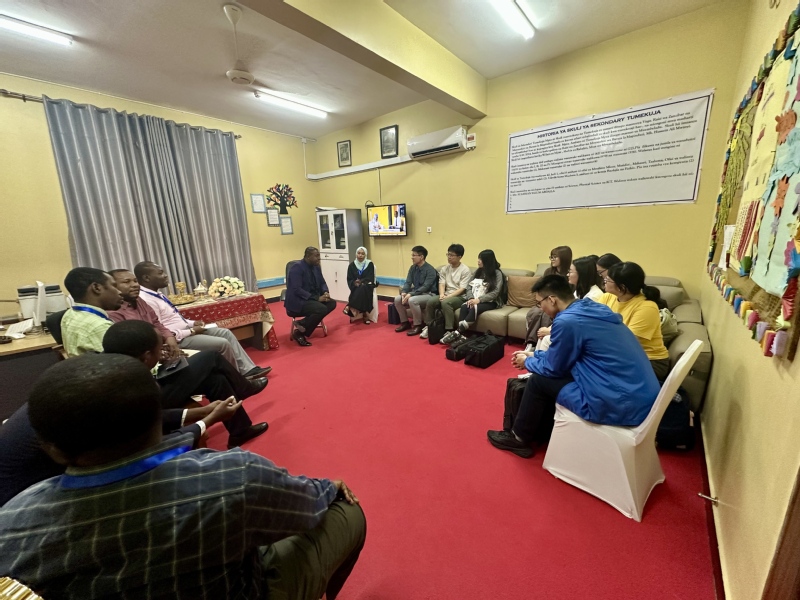
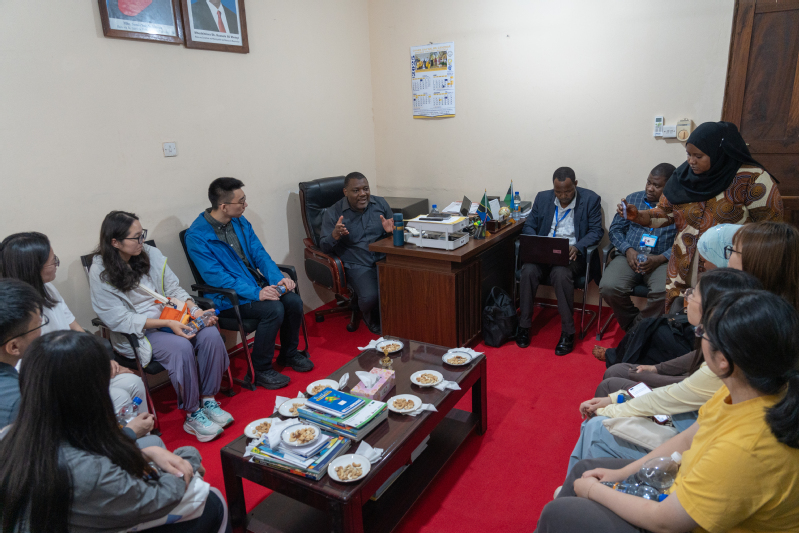
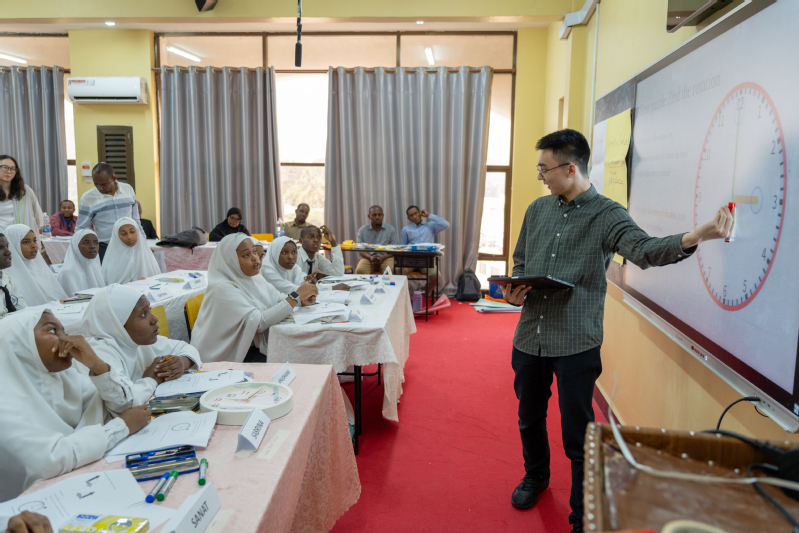
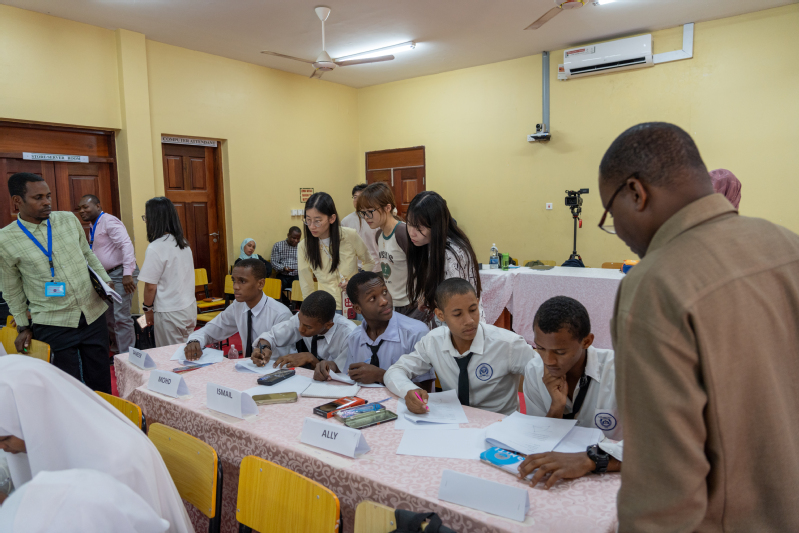
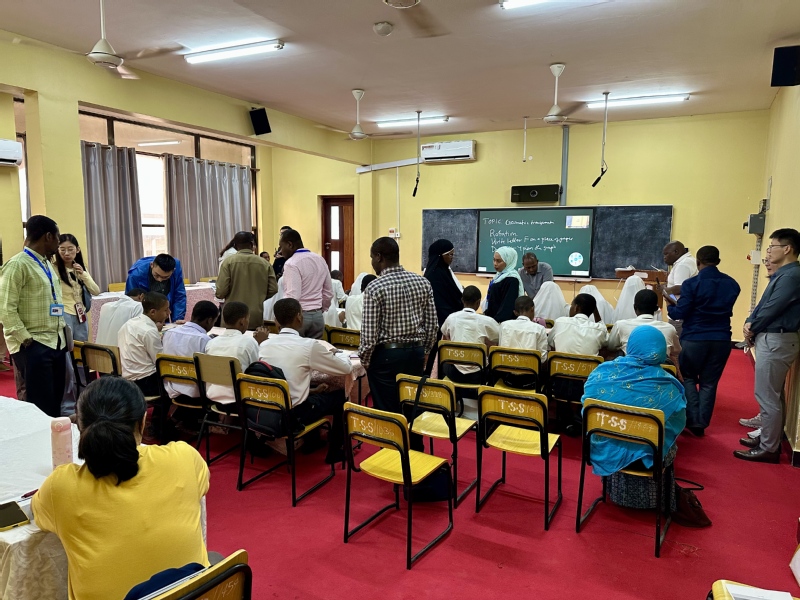
On the morning of July 17, the Volunteer Team visited Dr. Samia Primary School again. Huang Heping, a mathematics teacher from the International Division of Fudan University Affiliated High School, took real-life scenarios as the starting point and delivered a demonstration lesson titled Addition of Five-Digit Numbers to the school’s students and teachers. In the afternoon teaching research activity, Chinese and Tanzanian teachers held in-depth exchanges on teaching methods, content presentation, and student participation. After the research activity, Teacher Huang Heping continued to refine the lesson design and conducted multiple teaching rehearsals to fully prepare for the large-scale regional public lesson scheduled for the next day.
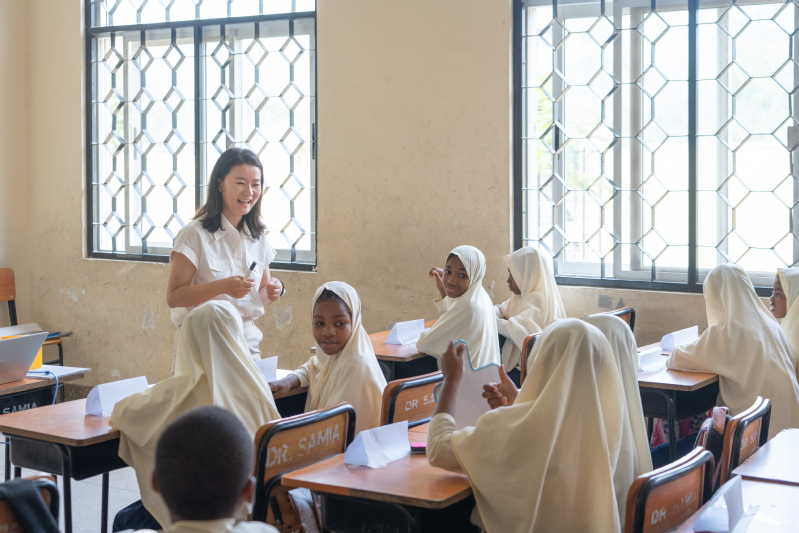
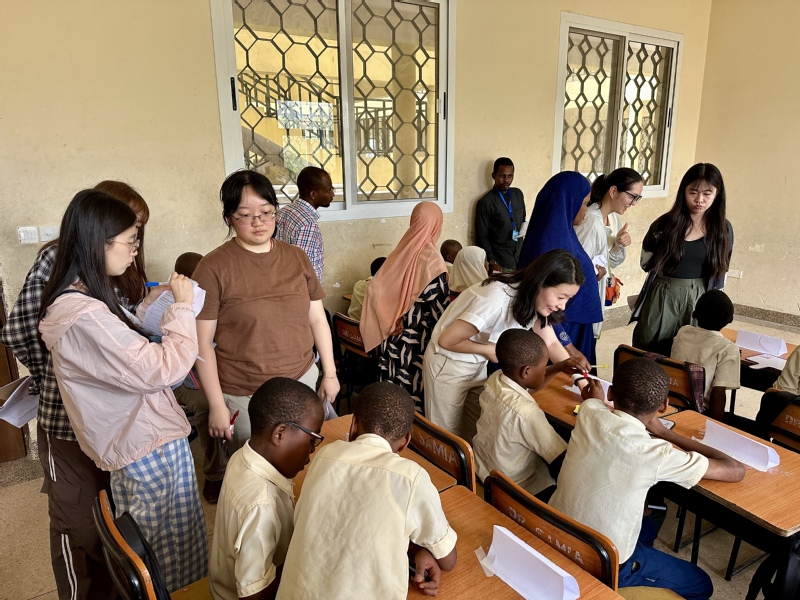
On the morning of July 18, Teacher Huang Heping delivered another public lesson on Addition of Five-Digit Numbers at the Kiembe Samaki Teacher Resource Center, attracting over 100 mathematics teachers from Zanzibar to observe the lesson and participate in discussions. Student volunteers also actively engaged in tasks such as lesson preparation, material distribution, class observation, and post-class discussions, providing support for this large-scale event. During the subsequent teaching sharing session, Zhang Yunji, a doctoral student, delivered a special report on variation teaching with specific teaching cases, explaining the definitions and connotations of mathematical tasks and variation. On the afternoon of the same day, Dr. Shen Yihua systematically introduced the process and core characteristics of China’s TRG activities to the Zanzibari teachers who participated in the public lesson, and detailed the usage method of the classroom observation checklist. During the subsequent teaching research session, members of the Volunteer Team joined various groups of Zanzibari teachers for discussions, guiding them to share their observation experiences based on the checklist.
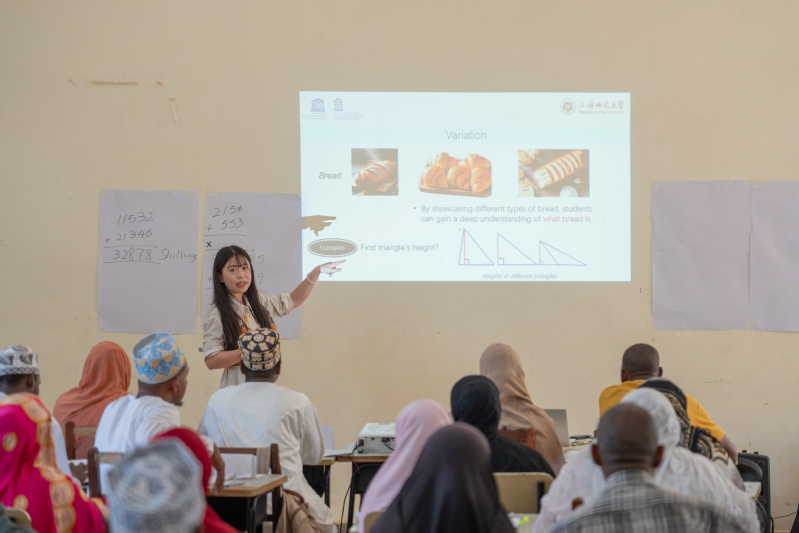
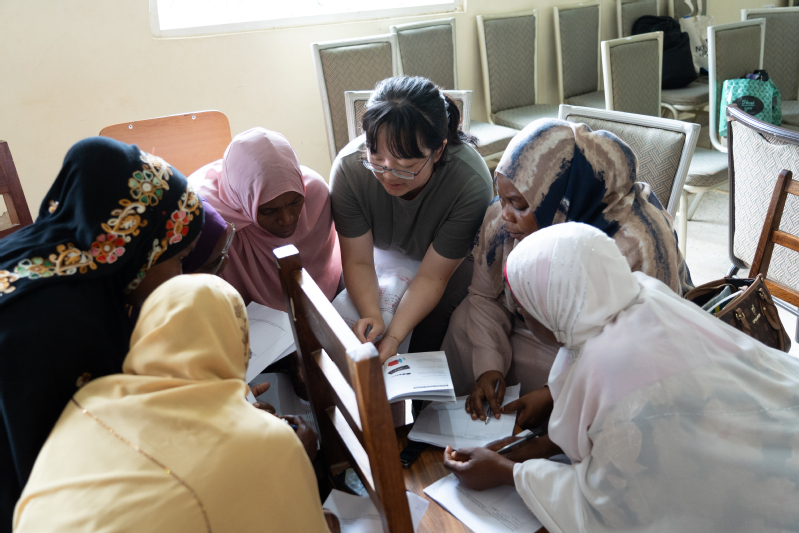
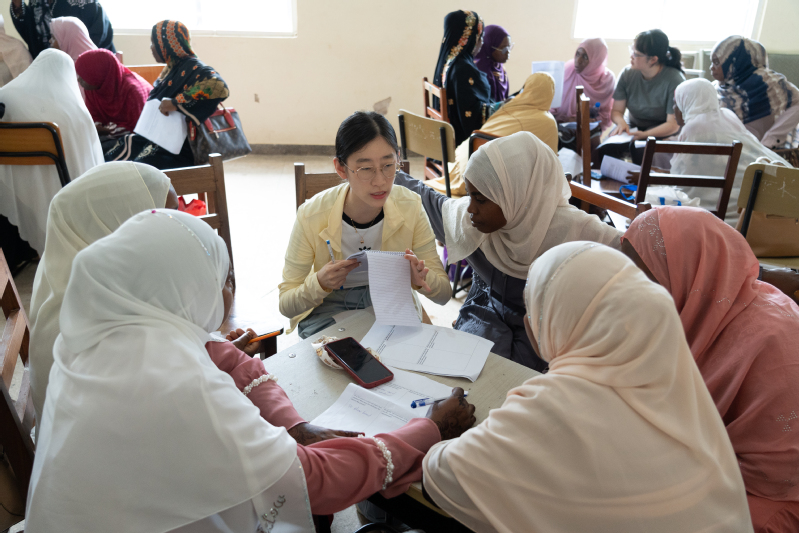
On July 21, a Delegation from UNESCO TEC and SHNU (hereafter referred to as the Delegation) and the Volunteer Team were invited by MoEVT to attend a welcome ceremony hosted by MoEVT, with the presence of several local education administrative officials. Mr. Hamis Abdalla Said, Permanent Secretary of MoEVT, delivered a welcome speech on behalf of the Zanzibari side, highly affirming the active participation of the International STEM Education Volunteer Team in the program and expressing sincere gratitude to the Shanghai Municipal Government for its long-term strong support. Professor Zhang Minxuan, Director of UNESCO TEC, recognized Tanzania’s long-term goals for educational development, put forward suggestions for the Zanzibari side’s education reform and development, and elaborated on the significance of the China-Tanzania mathematics teacher exchange program. After the welcome ceremony, the Delegation and the Volunteer Team, accompanied by school officials, visited Tumekuja Secondary School to tour the campus and inspect the operation of the smart classroom donated by a Chinese enterprise. Subsequently, on behalf of UNESCO TEC, Professor Zhang Minxuan donated the Share Maths (Shared Tree) series of teaching resources to representatives of Tanzanian teachers. On the afternoon of the same day, Gu Yuanhao, a mathematics teacher from the International Division of Fudan University Affiliated High School, delivered another mathematics lesson themed Geometric Transformations: Rotations in the smart classroom of Tumekuja Secondary School. Building on the previous use of ICT features in the smart classroom, this lesson further focused on visualizing the concept of rotation and enhancing the effectiveness of teacher-student interaction in the classroom. During the TRG activity, Teacher Gu Yuanhao reflected on his teaching, systematically reviewing the design ideas and practical highlights of the lesson, and shared his experiences regarding student participation and technology application in the classroom.
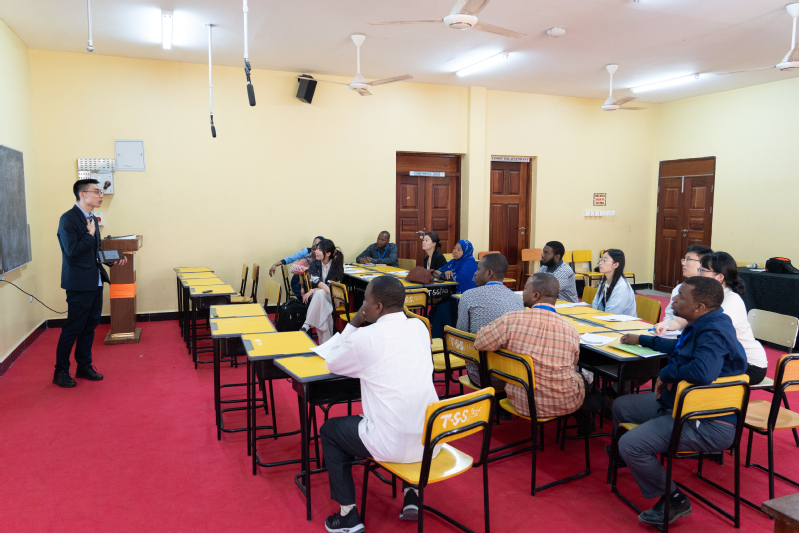
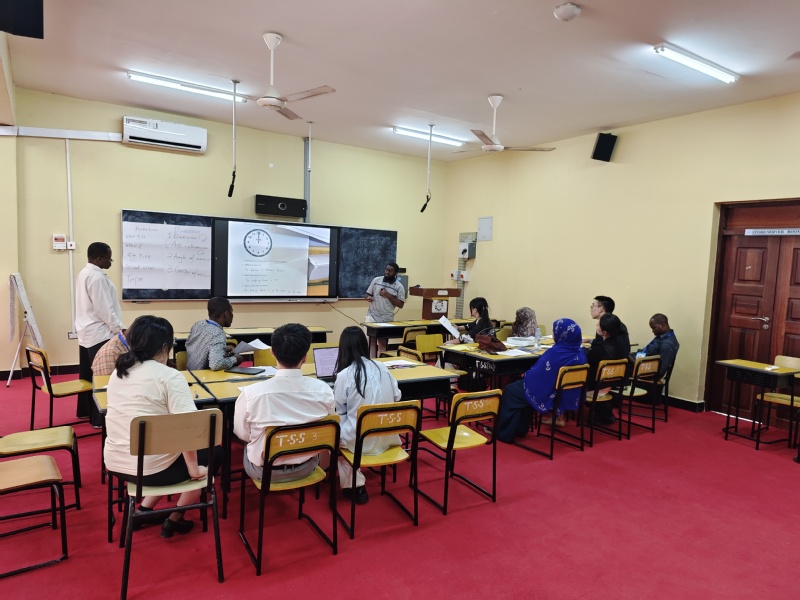
On the morning of July 22, the Delegation and the Volunteer Team left Zanzibar, arrived in Arusha, Tanzania, and visited the Arusha Regional Office and Arusha Secondary School to conduct exchanges on educational cooperation, teaching practice, and teacher development. The visit was fully documented by Soma Kwanza TV, affiliated with the Tanzania Institute of Education (TIE). At the Regional Office, Professor Zhang Minxuan, Director of UNESCO TEC, exchanged views with the Tanzanian side on regional educational development; at Arusha Secondary School, both sides attended a welcome ceremony. Ms. Lorna Nteles, Principal of Arusha Secondary School, and Ms. Asha Msechu, Principal of Enaboishu English Medium Primary School, delivered welcome speeches respectively, introduced the current status of their schools, and expressed expectations for further cooperation. In his speech, Professor Zhang Minxuan emphasized that the core of educational exchange lies in connecting people. Dr. Godson Lema, Director of Innovation and Curriculum Development at TIE, reviewed the achievements of China-Tanzania cooperation in mathematics education over the years; Dr. Shen Yihua introduced the China-Tanzania Mathematics Teacher Exchange Program. Finally, on behalf of the Chinese side, Professor Hu Guoyong, Director of the International Centre for Teacher Education at SHNU, donated the Share Maths (Shared Tree) series of teaching resources and exchanged souvenirs with the Tanzanian side. After the ceremony, teachers and students from China and Tanzania engaged in enthusiastic exchanges, creating a lively atmosphere.
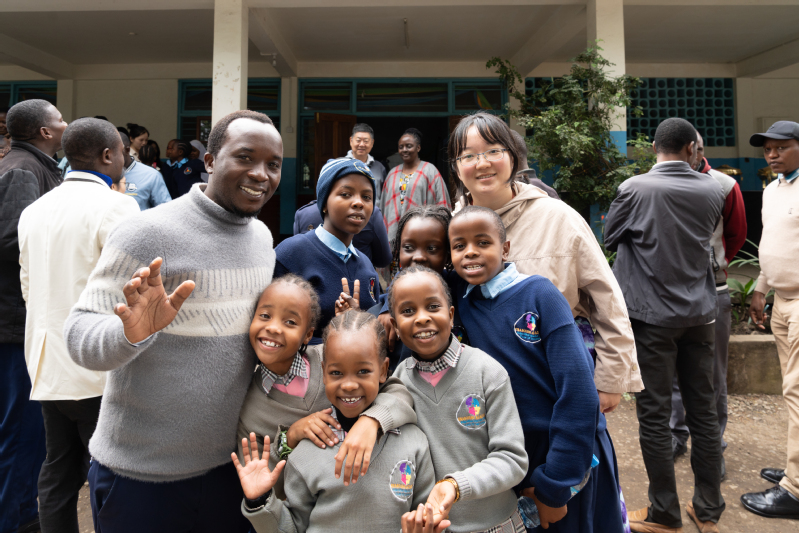
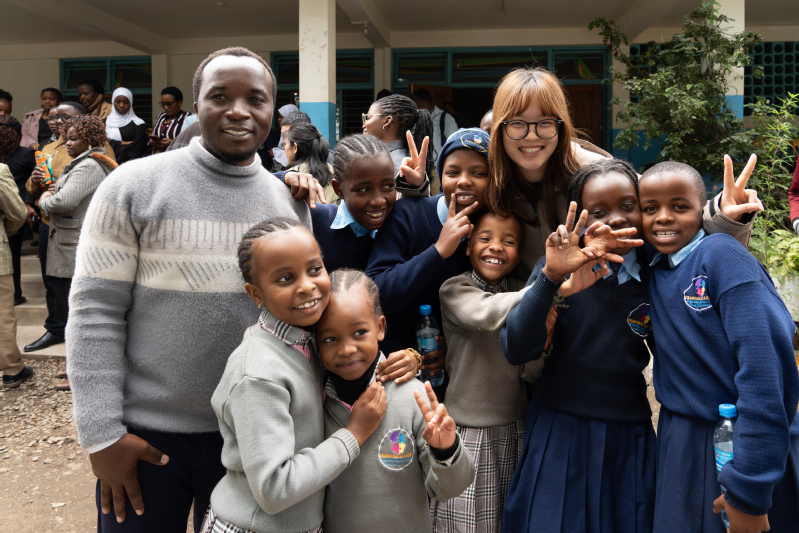
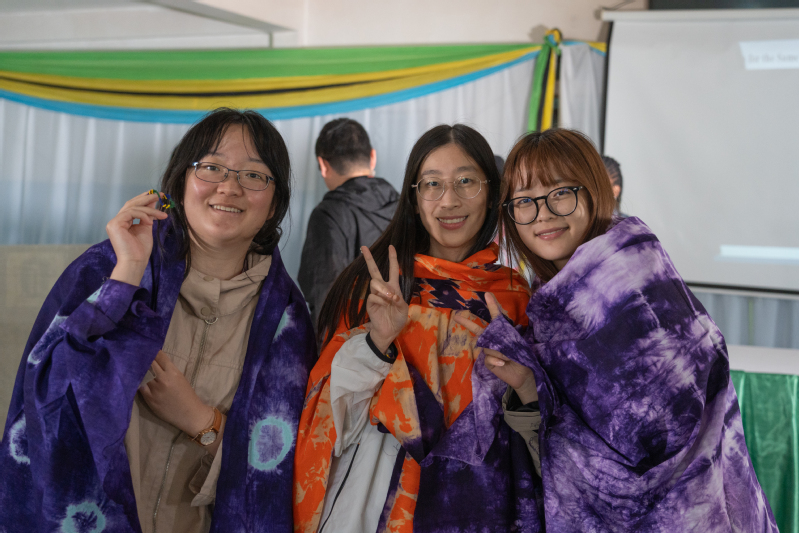
On July 23, the Delegation and the Volunteer Team visited Enaboishu English Medium Primary School, where teachers and students warmly welcomed them with drum music. During the teaching observation session, Gerald Lazaro Ngerenza, a teacher at the school, delivered a lesson titled Calculating the Surface Area of a Cylinder. Through physical models and paper-cutting demonstrations, he transformed abstract concepts into intuitive operations, demonstrating an innovative design integrating hands-on experiments and visualization strategies, which was highly recognized by both Chinese and Tanzanian teachers. On the afternoon of the same day, the Volunteer Team moved to Arusha Secondary School, where Emanuel Geoffrey Mweta, a mathematics teacher at the school, delivered a lesson titled Theorem of Inscribed Angles Subtended by the Same Arc. Integrating diagram demonstrations and heuristic questioning, the lesson not only emphasized the rigor of knowledge logic but also stimulated students’ thinking participation, achieving good classroom interaction and high goal attainment, which reflected the local teacher’s practical ability in geometry teaching. After the class, Chinese and Tanzanian teachers divided into groups to conduct in-depth teaching research based on the key elements of the classroom observation checklist. Tanzanian teachers clarified core teaching strategies and reflected on their practices, stating that they had gained substantial insights. This teaching research dialogue, lasting over an hour, promoted the collision of different educational concepts and laid a foundation for sustained collaboration and professional growth between the two sides.
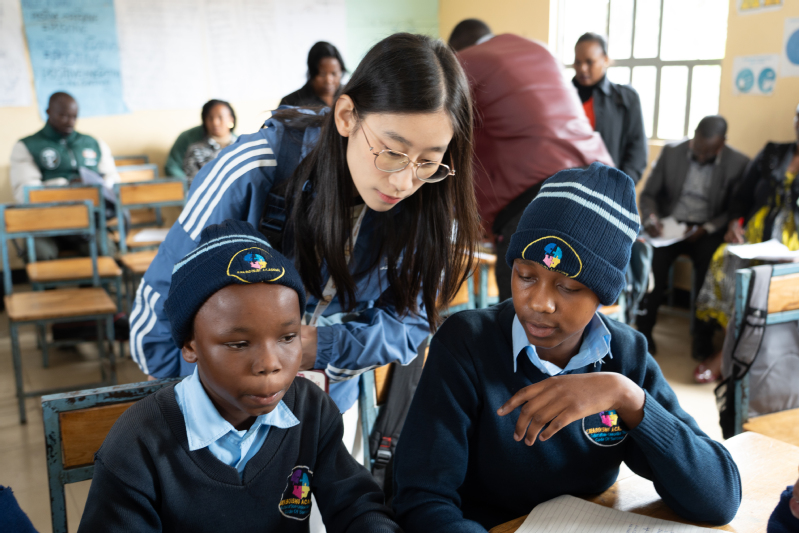
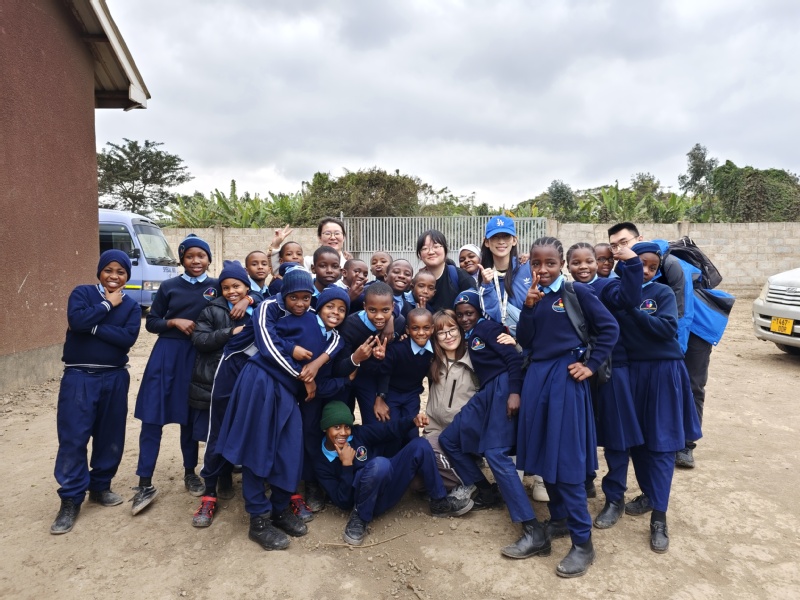
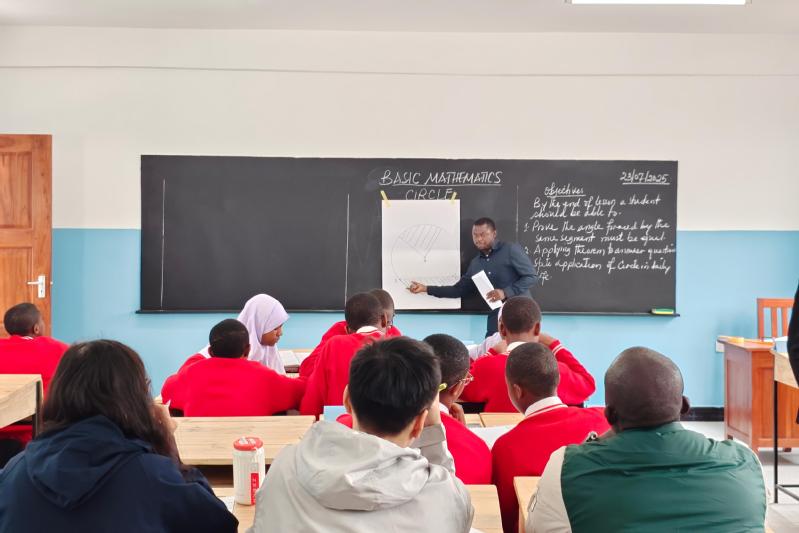
On the morning of July 24, the Delegation and the Volunteer Team arrived at Marangu Teachers College to conduct in-depth exchanges on the construction of the college’s teacher education system and the practical experience of teacher professional development in Shanghai. During the welcome session, Mr. Boniface Nichodemus Lyimo, a representative of teacher education at the college, introduced that as one of Tanzania’s 35 public teacher training institutions, the college has long focused on training language teachers, committed to improving the quality of language teaching in basic education, and demonstrated its educational philosophy of valuing both inheritance and innovation through historical photos. Subsequently, Professor Zhang Minxuan, Director of UNESCO TEC, delivered a special sharing session. Starting with Shanghai’s geographical location and population structure, he analyzed the logic behind Shanghai students’ consistent excellent performance in PISA, emphasizing the core role of teacher professional growth; introduced Shanghai teachers’ experience in participating in TALIS, pointing out that Shanghai’s educational achievements stem from the accumulation of grassroots practices and national policy support; and shared specific practices of Shanghai in teacher training, integration of pre-service and in-service teacher development, and school-based teaching research systems, providing a reference path for the construction of Tanzania’s teacher workforce. On the afternoon of the same day, the Delegation departed for Shanghai, while the Volunteer Team remained in Tanzania to complete subsequent tasks.
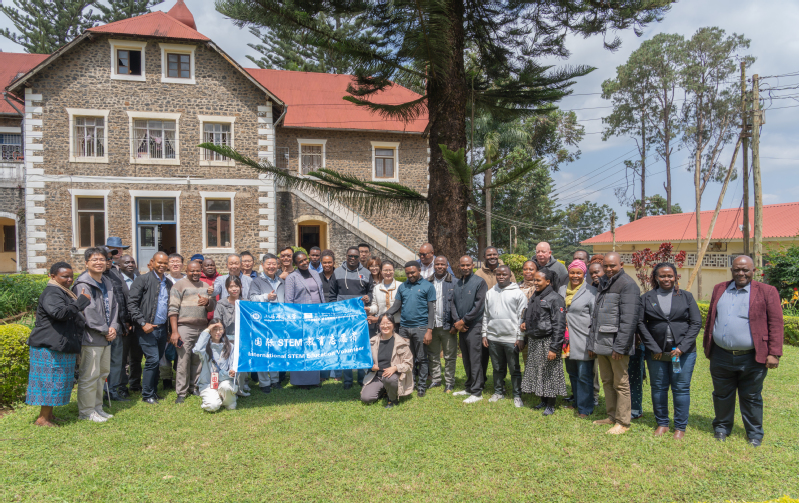
On the morning of July 25, Dr. Fu Jing, a mathematics teacher from the International Division of Shanghai Experimental School, delivered a demonstration lesson titled Theorem of Inscribed Angles Subtended by the Same Arc. In the class, she first guided students to review core geometric concepts such as arcs and central angles, then dynamically demonstrated the positional changes of points on a circle through animations, helping students intuitively understand the geometric essence of inscribed angles subtended by the same arc being equal, and inspired them to think about the in-depth logic of an infinite number of inscribed angles corresponding to the same arc. After the class, Chinese and Tanzanian teachers held in-depth discussions on student classroom participation and teaching methods. Tanzanian teachers emphasized that teaching content should be connected to students’ prior knowledge and put forward suggestions for improving the new lesson segment, aiming to enhance teaching effectiveness and stimulate students’ multi-angle thinking and problem-solving abilities.
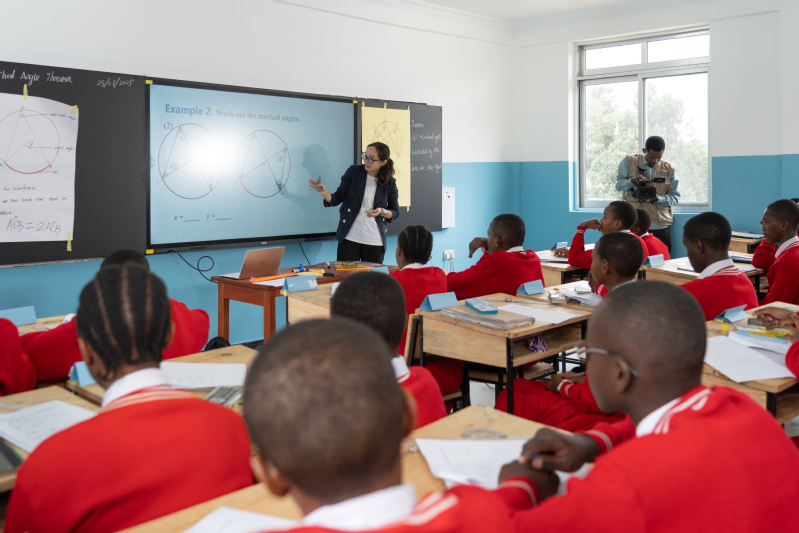
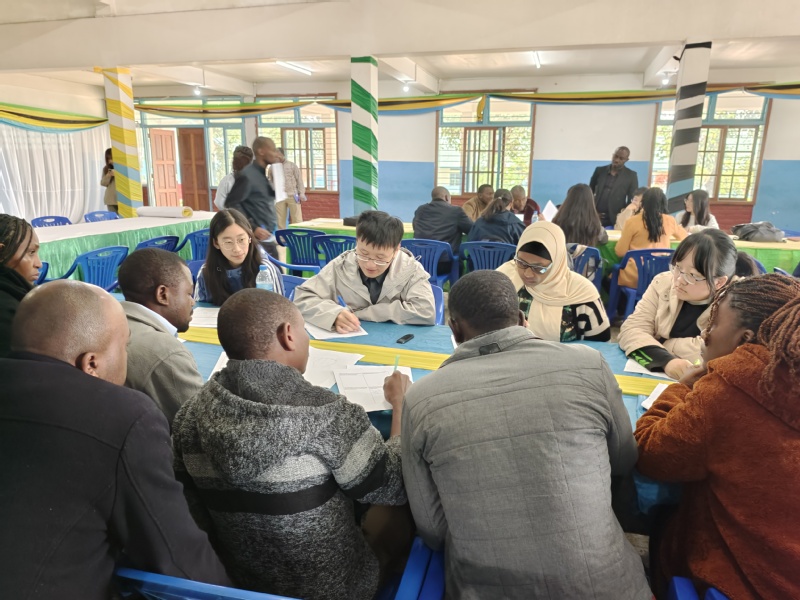
After multiple teaching rehearsals and in-depth discussions with team members over the weekend, Dr. Fu Jing delivered another public lesson on Theorem of Inscribed Angles Subtended by the Same Arc at Arusha Secondary School on the morning of July 28, attracting over 100 local mathematics teachers to observe and participate in discussions. During the subsequent teaching exchange session, Shi Yujia, a master’s student from SHNU, systematically introduced the process, core characteristics of Shanghai’s TRG, and the usage method of the classroom observation checklist, helping local teachers master these tools; Gong Yushu, an undergraduate student, explained the core concepts of mathematical tasks and variation teaching in the teaching manual with specific practical cases, assisting them in translating these concepts into classroom practice. During the discussion session, local teachers shared their lesson observation experiences in groups based on the checklist, resulting in a lively and productive exchange. On the afternoon of the same day, members of the Volunteer Team boarded a flight back to Shanghai from Kilimanjaro International Airport, and the Tanzania STEM Education Volunteer Team successfully completed its mission.
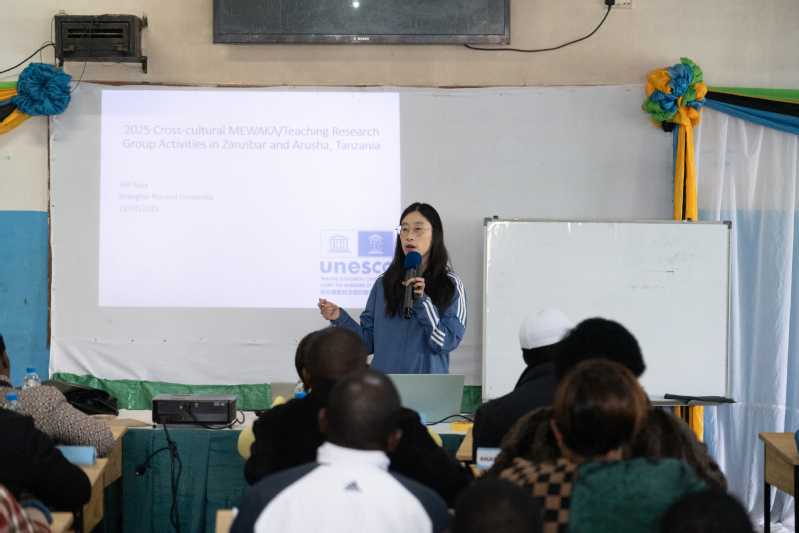
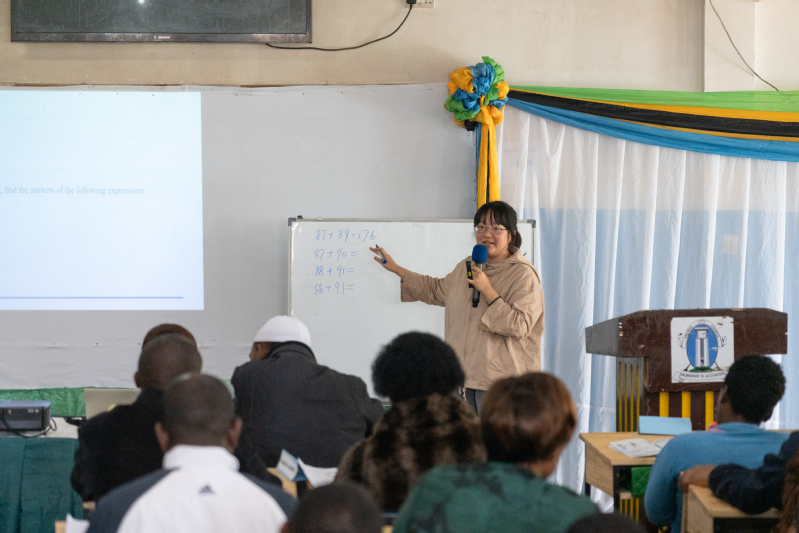
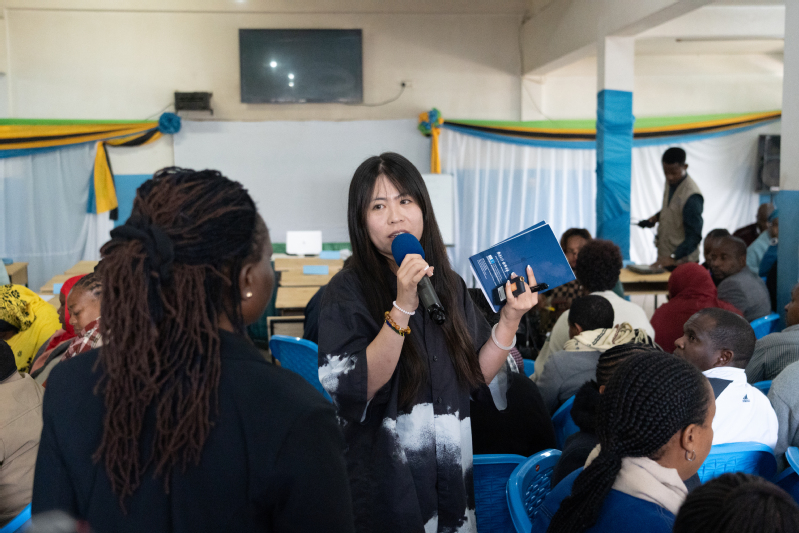
Although the 16-day overseas trip was highly intensive, all members of the Volunteer Team firmly grasped the essence of team division of labor and cooperation, always approached their work with full enthusiasm, and successfully resolved various unexpected issues. Shanghai teachers carefully prepared high-quality demonstration lessons, fully demonstrating the landscape of Shanghai’s mathematics education to Tanzanian teachers. A series of interactions—including teaching observations, teaching research dialogues, sharing of teaching resources, special lectures, and regional workshops—promoted the integration of ideas between Chinese and Tanzanian educators and advanced the localization of advanced teaching methods in Tanzania. Student volunteers leveraged their respective strengths and actively engaged in various tasks such as lesson preparation, class observation, post-class discussions, field research, and video documentation. While enhancing their own global competence, they also actively demonstrated the youth’s commitment to China’s educational going global initiative.
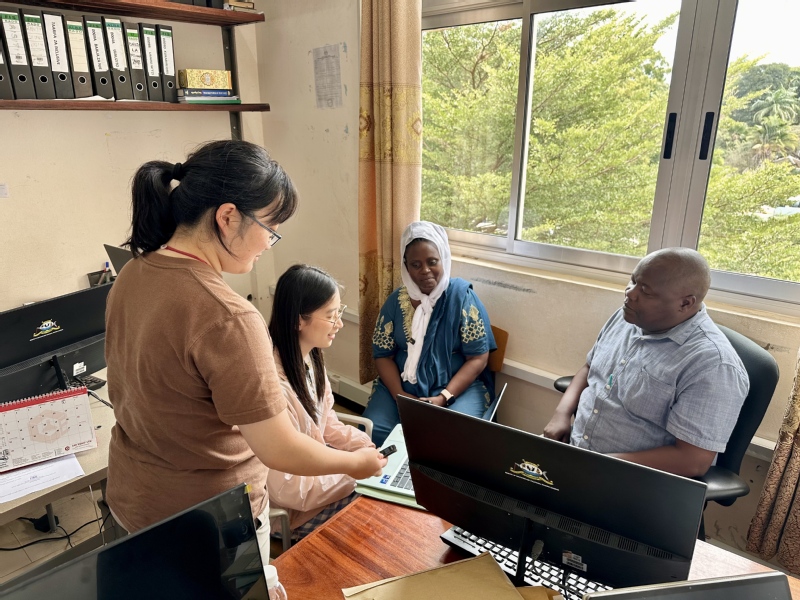
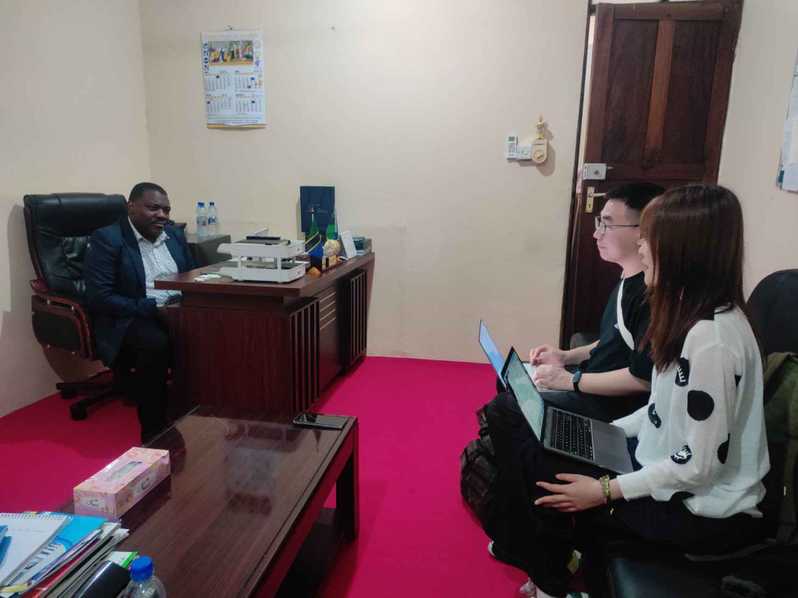
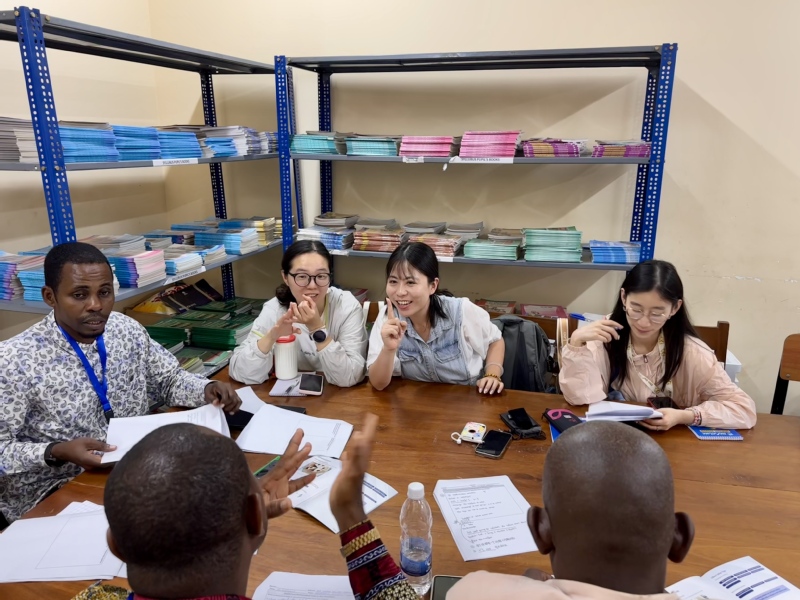
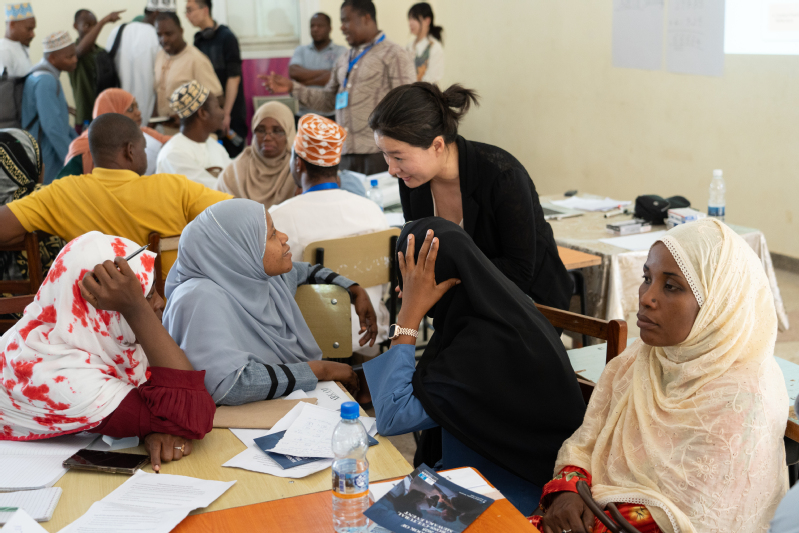
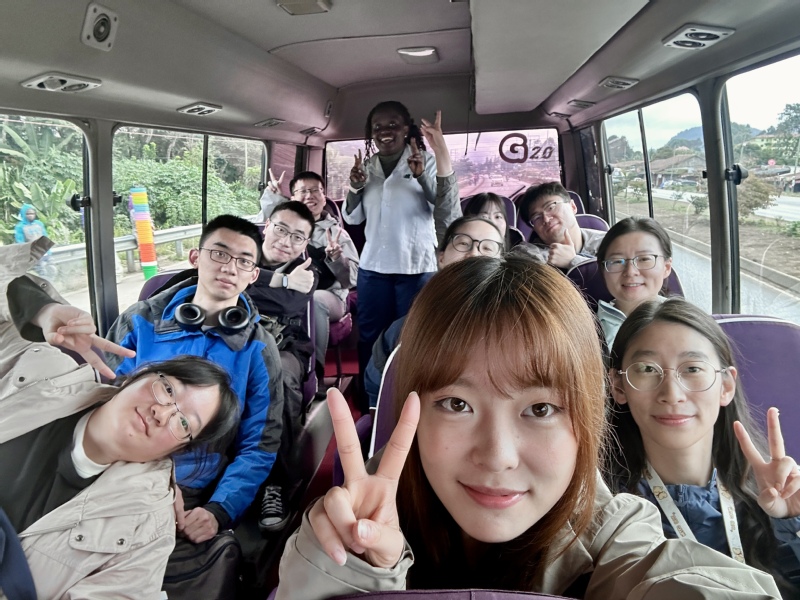
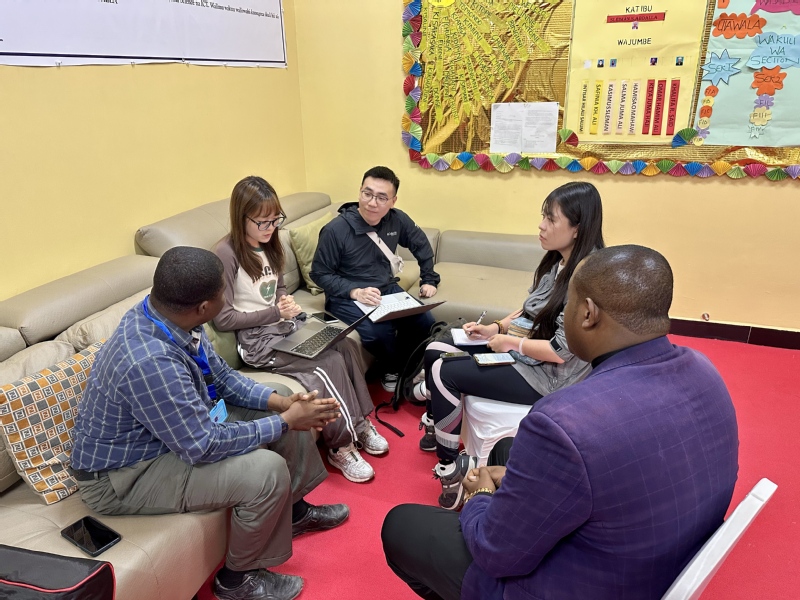
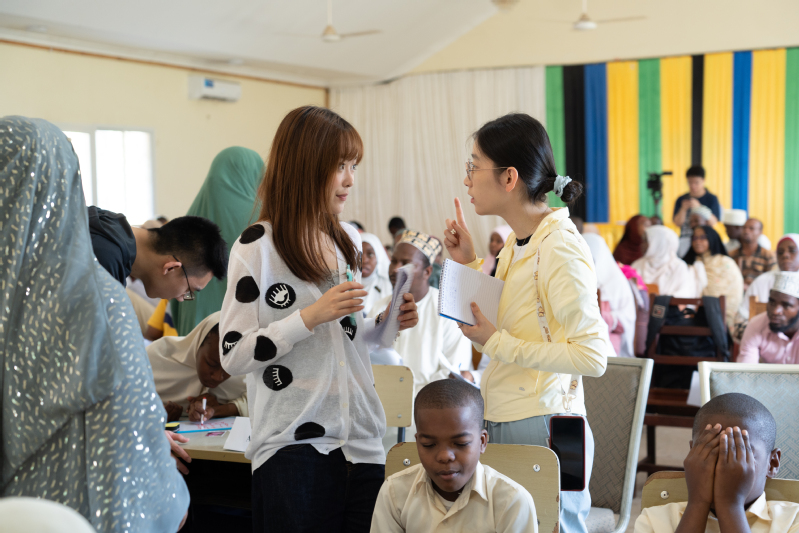
Through this volunteer activity, all members of the Volunteer Team have become more convinced that different cultures can uncover the shining commonalities among human civilizations through education, forge bridges and bonds in cultural exchanges, and create opportunities and new vitality through mutual benefit and progress. This is precisely the significance of international volunteer activities and the responsibility of young volunteers.
